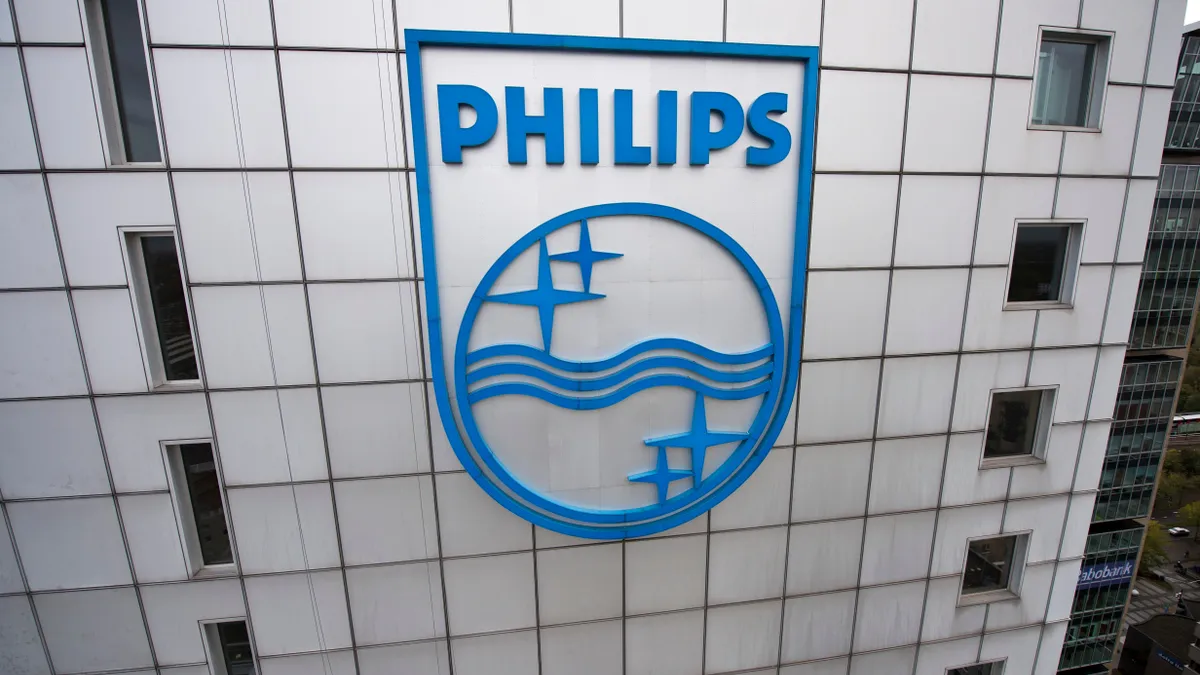Dive Brief:
- The Food and Drug Administration released new data about medical device reports associated with Philips Respironics' ongoing sleep apnea and ventilator recall, including more than 100 cases of patient deaths and tens of thousands of total reports.
- Between April 2021 and April 30, 2022, the FDA received more than 21,000 medical device reports associated with the breakdown of foam used in the machines to dampen noise, which has been the catalyst for the recall of millions of sleep apnea and ventilator devices. Of the 21,000 reports, there were 124 reports of patient deaths associated with the foam breakdown. The data didn't specify how many serious injury reports were made over the same period.
- The medical device reports include both mandatory reports from Philips and voluntary reports from healthcare professionals, consumers and patients, according to the update. The FDA said that the reporting system is helpful but has its limitations, stating that the “incidence, prevalence, or cause of an event cannot typically be determined from this reporting system alone due to under-reporting of events, inaccuracies in reports, lack of verification that the device caused the reported event, and lack of information about frequency of device use.”
Dive Insight:
The new data come nearly one year into Philips' recall, which has grown to include over 5 million ventilator and sleep apnea devices. The company first publicly acknowledged product safety issues during an April 2021 earnings call and announced the recall in June.
The recall is due to foam in the machines breaking down and possibly being inhaled or ingested by users, risking exposure to toxic chemicals.
In March, the FDA ordered Philips to notify all of its distributors, healthcare providers and patients after finding that the company hadn't adequately communicated the recall. The agency's Center for Devices and Radiological Health also proposed earlier this month a separate order that would require Philips to submit a plan to repair and replace affected devices.
Along with the 124 death reports, the FDA said that there has been a wide range of injuries reported, including cancer, pneumonia, asthma, infection and chest pain.
“The FDA remains committed to ensuring patients and providers have timely information about the recalled devices. In addition to our recent notice to the firm, we are continuing to closely monitor the reports and the risk posed by the foam,” CDRH Director Jeff Shuren said in an emailed statement on Thursday. “Our recommendations to patients and providers remain unchanged at this time and we will continue to provide updates as we gather and analyze additional information, including any further actions related to this recall.”
The more than 21,000 medical device reports between April 2021 and April 30, 2022 is a jump from the prior 10 years.
Between 2011 and April 2021, Philips filed 30 medical device reports to the FDA due to sound abatement foam issues with no reports of injuries or deaths, according to an emailed statement from the company. Following the April 2021 acknowledgment of safety issues and the June recall announcement, Philips “received a steep increase in complaints allegedly associated with possible foam degradation.”
Similar to the FDA, Philips contends that the “cause of an event cannot typically be determined from this reporting system alone,” adding that the company investigates all allegations of patient death and serious injury and reports of device malfunctions.
“Philips regrets any inconveniences caused by this issue and we are committed to supporting the community of patients who rely on our sleep and respiratory care solutions for their health and quality of life, and the physicians and customers who are dedicated to meeting patient needs,” the company said in a statement on Friday. “We are replacing or repairing the devices related to the Respironics field action as fast as possible and are continuing to update patients and customers about the progress of the program.”
Philips also noted that it has been testing the potential health risks related to the use of devices. In December, the company argued that exposure to volatile organic compounds in certain recalled machines is not typically associated with long-term health consequences.
On an April earnings call, Philips told investors that the company and subsidiaries have been subpoenaed by the U.S. Department of Justice for information on the recall. Philips has set aside 885 million euros (about $934 million as of Friday) to address the recall, according to the company's statement.











